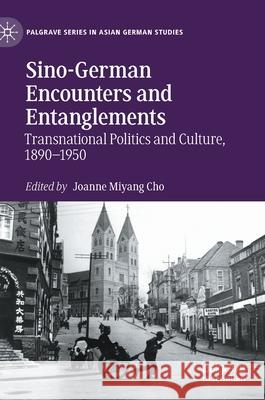Sino-German Encounters and Entanglements: Transnational Politics and Culture, 1890-1950 » książka
topmenu
Sino-German Encounters and Entanglements: Transnational Politics and Culture, 1890-1950
ISBN-13: 9783030733902 / Angielski / Twarda / 2021 / 344 str.
Kategorie BISAC:
Wydawca:
Palgrave MacMillan
Seria wydawnicza:
Język:
Angielski
ISBN-13:
9783030733902
Rok wydania:
2021
Wydanie:
2021
Numer serii:
000912729
Ilość stron:
344
Waga:
0.58 kg
Wymiary:
21.01 x 14.81 x 2.06
Oprawa:
Twarda
Wolumenów:
01
Dodatkowe informacje:
Wydanie ilustrowane











